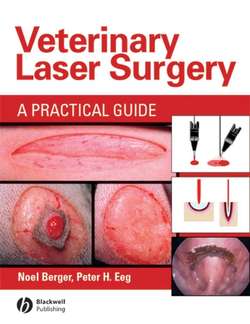Описание книги
Surgical and therapeutic use of lasers began in human medicine in the early 1960s. Technology and equipment advanced rapidly. Over the last ten years veterinarians have been exploring the many potential advantages that various lasers provide their patients. Because laser light energy can be applied directly to target tissue or administered to distant lesions at a remote site through fiberoptic components, laser surgery has become an invaluable and growing veterinary surgical resource. Unlike many medical technologies, the size, reliability, and portability of lasers have improved so rapidly that they are now both economically and practically feasible for the general and specialty veterinarian. Routine laser use in veterinary medicine stands poised to gain large-scale general acceptance for everyday routine and specialty procedures. Written by experts in the field, Veterinary Laser Surgery: A Practical Guide strives to help general and specialty veterinary practitioners understand, implement and expand the use of laser energy in safe and rational ways for both surgical and therapeutic procedures to further improvement the veterinarians ability to enhance the patient’s quality of life. PRACTICAL PICTORIAL GUIDE / ATLAS feature that includes 31 case studies of the most common laser surgery procedures. Broad spectrum of specific laser information, including chapters covering basic laser physics through specific laser surgery techniques and pain management. Special sections on CO2 and Diode laser wavelengths. Provides veterinarians with skills and techniques to improve the comfort and quality of patients’ lives through appropriate laser use. User-friendly format makes referencing easy. A practical reference for specialty and general veterinarians.
